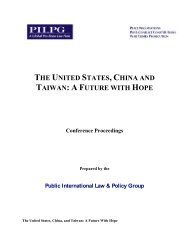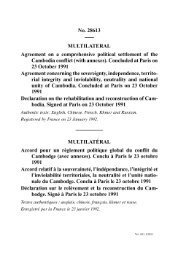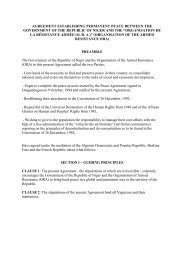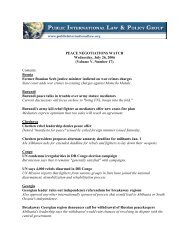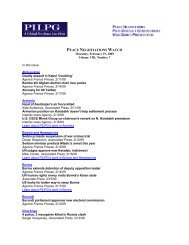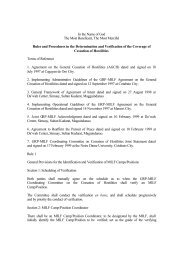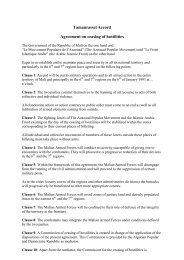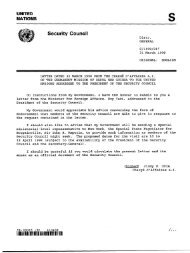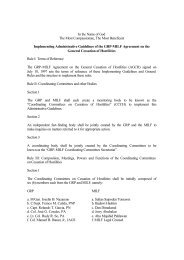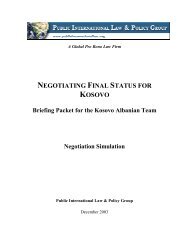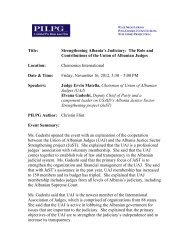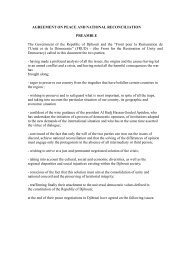You also want an ePaper? Increase the reach of your titles
YUMPU automatically turns print PDFs into web optimized ePapers that Google loves.
5<br />
ASSESSMENT<br />
Government Crisis<br />
The three-month stalemate over forming Kosovo's first democratically elected<br />
government—after internationally run elections in November 2001—finally ended on<br />
February 27 in a compromise brokered by newly arrived UN chief Michael Steiner.<br />
Ibrahim Rugova, whose LDK party won almost 46 percent of the vote, will become<br />
President while the Prime Minister responsibility will go to Bajram Rexhipi, of the<br />
second largest PDK, not to the party's leader, former KLA chief Hashim Thaci.<br />
The long-running crisis was regarded by Kosovo Albanians and internationals alike as a<br />
disaster. It raised serious questions about the ability of Kosovo's current crop of<br />
politicians to govern the province effectively in a democratic fashion. The crisis also<br />
highlighted a number of dilemmas facing the international community, which now has to<br />
preside over the transfer of self-governing authority to the people of Kosovo without<br />
having any strategy for Kosovo's future.<br />
The November elections to the Kosovo Assembly, conducted by the OSCE as were the<br />
October 2000 local elections, were generally considered to have been well-run and an<br />
accurate reflection of the electoral will of the people of Kosovo. Serbs participated in the<br />
voting, for the first time since the 1999 war, but Albanian participation, approximately 67<br />
percent according to OSCE data, was down somewhat from the municipal elections in<br />
October 2000. Rugova's LDK with 46 seats, the PDK with 26, and former KLA chieftain<br />
Ramush Haradinaj's AAK with 8 seats shared almost all of the Albanian vote. The Serb<br />
Povratak coalition won 22 seats and ten are held by parties representing Kosovo's other<br />
ethnic minorities.<br />
After the elections the newly chosen assembly met three times, but with almost all of the<br />
non-LDK deputies refusing to participate, Rugova failed to achieve the necessary 60<br />
votes in the 120 member body to attain his cherished goal of becoming Kosovo's first<br />
democratically elected and internationally acknowledged president. The crisis had<br />
almost nothing to do with policy. It stemmed, rather, from a deep-seated animosity<br />
between Rugova and Thaci as well as reluctance within the LDK leadership to give up<br />
the power and patronage associated with the post of Prime Minister.<br />
On the surface, at least, there is little discernable policy difference between the two men<br />
or the two parties—both want Kosovo to be independent, as do all Kosovo Albanians,<br />
and both say that their immediate priority is to form Kosovo's new institutions of<br />
democratic self-government and to begin a process of privatization intended to get<br />
Kosovo's former socially-owned economy moving again. Rugova and Thaci, however,<br />
have deep-rooted personal and political differences which go back to the 1999<br />
Rambouillet conference, where Thaci was the beneficiary of a coup which deposed<br />
Rugova from his previously accustomed leadership position on the Albanian team, and to<br />
the era immediately after the 1999 conflict, when the Thaci led a KLA-dominated<br />
"Provisional Government" which used the prestige—and arms—won in the conflict with



